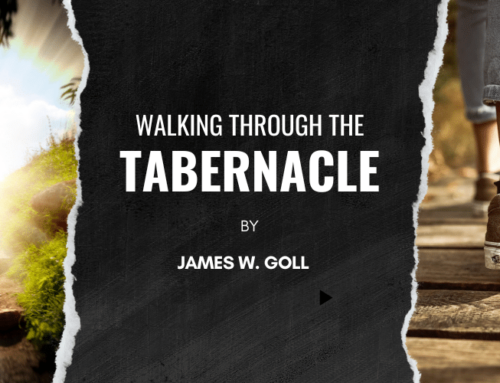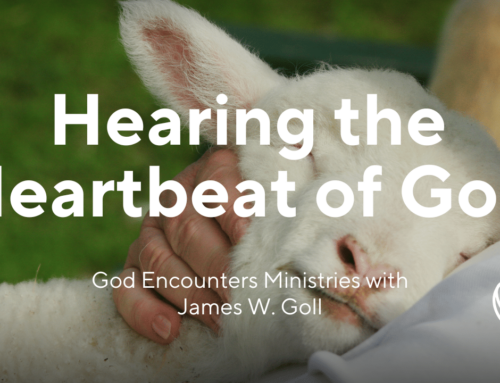I) The Pitfalls of Prophetic Intercessors
Prophetic Intercessors are those who are called to prepare the way for God’s will to be done upon the earth. A problem can arise, however, when these intercessors fall into the trap of thinking that they have to explain everything before they pray it or perform it. This is but one of the many pitfalls that encumber prophetic intercession.
Others include:
Finding identity in the prophetic rather than in God who gives it.
Adding to or subtracting from what God has said in order to either look knowledgeable or to keep from looking ridiculous.
Refusing to allow the prophetic word or act to undergo the scrutiny of authority.
Getting into “one-upmanship” by trying to outdo the previous prophetic prayer, word or deed.
Adding personal opinions or impressions that can bring judgment over a person, a people group or a land.
Sharing secrets that God has not okayed.
Speculating about God’s time frame or other details.
Owning the prophetic word or act rather than releasing it to God’s long-range purpose.
Attributing more authority to self than to God, and thereby becoming puffed up.
Spending too little time in the prayer closet when God opens the door to go public|
Forgetting that many of the biblical prophets were ridiculed and stoned for their obedience.
Refusing to give a word because of jealousy.
Falling prey to intimidation or unbelief.
II) Prophetic Acts in Scripture
Another way that God will ask His prophetic intercessors to usher in His will is through prophetic acts, or tangible symbolic representations of things that He either does not want to be forgotten or things that He will bring to pass.
The following are only a few of the prophetic acts of the Old and New Testaments:
Moses was told to lift up the serpent on a stick for those who were sick. This prophetic act would ultimately represent Christ upon the cross, taking our sins upon Himself to render the healing of body, soul and spirit (see Num. 21:8, 9).
Moses commanded the Israelites to place the blood of a lamb upon the doorposts of the Jews so the angel of death would pass over. This prophetic act was symbolic of Christ, the Lamb of God, and the fact that His shed blood over our lives will result in eternal life (see Exodus. 12:22, 23).
Ezekiel was told to take a brick, write Israel upon it and lay siege upon the brick. This prophetic act was representing an attack against Israel (see Ezek. 4:1-3).
Ezekiel was also commanded to take two sticks and write on one “For Judah and for the sons of Israel, his companions” and on the other “For Joseph, the stick of Ephraim and all the house of Israel, his companions”. Ezekiel was told to join the two sticks as one. This prophetic act was to represent the Jews being brought together as one nation (Ezek. 37:16-22).
Ahijah the Shilonite prophet took his new cloak and tore it into 12 pieces. This prophetic act represented the dividing of Israel into 12 tribes (see 1 Kings 11:30-39).
An unnamed woman broke an alabaster vial of costly perfume and poured it upon Jesus’ head. This prophetic act symbolized Jesus’ burial (see Mark 14:3, 8).
Jesus was baptized in the Jordan River. This prophetic act symbolized His death, burial and resurrection. We perform this prophetic act to demonstrate that we acknowledge the power of His death, burial, and resurrection in our own lives (see Matt 3:13; Luke 3:21; Acts 2:38).
The Lord’s Supper, also known as Communion, was presented by Christ to symbolize our acceptance of His broken body and shed blood in payment for our sins. This prophetic act is a reminder that, as someone appropriately said, “He paid a debt He did not owe for people who owed a debt they could not pay” (see Mark 14:22-24; 1 Cor. 11:24-26).
Agabus took Paul’s belt and bound his own feet and hands. This prophetic act symbolized the way the Jews at Jerusalem would bind Paul and deliver him into the hands of the Gentiles (see Acts 21:10, 11).
III) Moses, the Profile of a Prophetic Intercessor
No other prophet of God is held in higher esteem among Christians and Jews alike than Moses, the only one who is credited with having seen the Lord face-to-face (see Exodus. 333:11). Every prophetic intercessor will find deep, rich nuggets of wisdom embedded in the study of Moses’ life. God Himself said that His conversations with Moses were “just as a man speaks to his friend” (v.11).
As we stretch the telescope of time back toward the life of Moses, we see that he turns aside to study a bush that is on fire but is not being consumed by the flames. God is about to teach something that will change his life forever, and we too should take note. Bushes are consumed as their own energy is used up. This bush was indwelt with the energy of the bush remained at rest. This illustration is branded into the pages of biblical history so that we might remember: It is His power that brings about prophetic intercession and the acts that accompany it!
Let’s look at some other lessons to be gleaned from Moses’ life:
Be willing to give up everything and go wherever He directs!
Don’t argue with God.
A bad past does not disqualify you for a prophetic future, so refuse to stare at the rearview mirror.
If your life has been imperiled with deep wounds, trust that God will use the depth of your dependence upon Him to prophetically lead others in a pathway of deliverance.
Don’t be so holy and separate that you’re afraid to get dirty from the sheep-love them, touch them, serve them.
Recognize that interceding for dirty sheep is a way to find friendships with a holy God.
Make sure that your intercession is filled with love for the rebellious.
Stand in the gap for the iniquities of others.
Be sure to tell God that if He doesn’t go with you, you won’t either.
Know that God is Lord over those who oppose you.
Expect God to show up in the ordinary with His extraordinary power.
Be on the alert to His voice even in desert times.
Be real in God’s presence and take off the robes of self-effort.
Take off the shoes of your human authority in His presence so He can endow you with renewed authority for His future plans.
Pick up your authority when God says it’s time, knowing that others will recognize it.
Focus on who He is and not on human intellect or education.
Refuse to substitute action for intimate intercession.
Allow commitment to the Lord to drive away all intimidation or fear.
Realize that when you’ve had the greatest times in prayer, others are most apt to shock you with the works of idolatrous hands.
Even if you blow it, run to God for renewed strength, and restore broken relationships with people.
Ask God to give you a hunger and a thirst for holiness.
Know that even those who are closest to you may become jealous, but God is big enough to set the record straight.
Stay submitted to authority, no matter how sure you are that you have heard God’s plan.
Seek and follow wise counsel.
Don’t take credit for what God gives through you.
Cultivate a love for prophetic song.
Say yes to mentoring others who are pursuing prophetic prayer so He can multiply His life through you for future generations.
Beware of adding to of subtracting from the acts of a holy God, realizing that disobedience can block the gate to your promised land.
IV) Buy Gold- Refined By Fire!
From Revelation 3:18 – “I advise you to buy from Me gold refined by fire, that you may become rich, and white garments, that you may clothe yourself, and that the shame of your nakedness may not be revealed; and eye salve to anoint your eyes, that you may see.”
This is the advice of the One who sits upon the throne of heaven to send forth prophetic acts and intercession. Moses bought g0ld, the white garments and the eye salve. Will you?
I trust this Vision Cast was helpful to you and will be used as a tool to introduce you to the ministry of Beth Alves. This material was taken from the co-authored book Intercessors by Beth Alves and Tommi Femrite available through our Encounters Online Bookstore.
Beth Alves
Intercessors International






Leave A Comment
You must be logged in to post a comment.